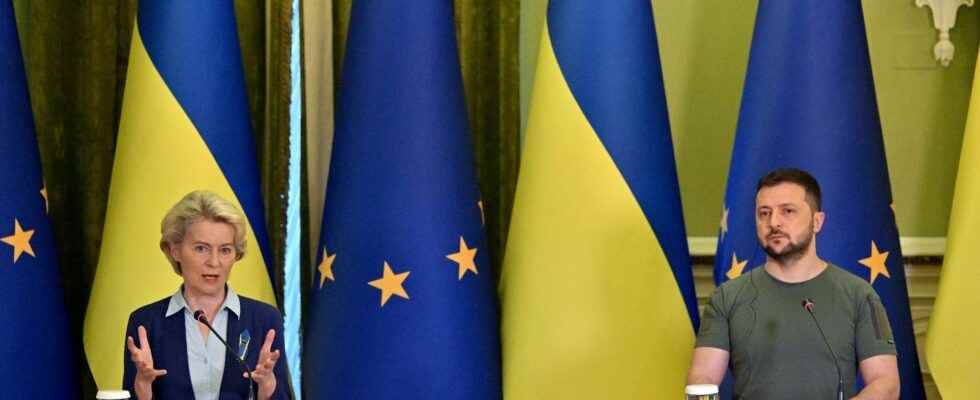On December 21, Volodymyr Zelensky left kyiv for the first time since the start of the Russian invasion of Ukraine and traveled to Strasbourg, where the European Parliament is holding its plenary sessions. The Ukrainian President wanted to personally thank the European Union for its vital contribution to his country’s resistance to Russian aggression… Oh no, sorry, I must have been dreaming. It was in fact to Washington that Zelensky booked his first trip outside Ukraine, not to Strasbourg or Brussels. The dream, however, had its logic: the one that bears the brunt of the effects of the war, the one whose strategic security would be threatened as a priority if Putin achieved his ends, the one that has the greatest interest in seeing Ukraine become a a stable democracy that shows solidarity with its allies over the long term, that is Europe. As Zelensky so aptly said before the US Congress: “Your money is not charity, it is an investment in global security and democracy”.
War as an indicator
The European Union still does not occupy the place that the interests of its Member States require it to have. The largest free trade area in the world has so far never succeeded in transposing its economic power into a force of strategy, diplomacy and defense commensurate with it. The war in Ukraine was the cruel revealer of these weaknesses: badly thought out energy dependence, inability to deploy a deterrent European force in Ukraine before the invasion, insufficient stocks of armaments and uncoordinated national decisions to compensate for them. And yet, the same war changed Europe. Never has the ambition of European sovereignty as outlined by Emmanuel Macron at the Sorbonne in 2017 been so close to fruition.
Before the Covid crisis of 2020, it was unthinkable for Europeans to decide on the issuance of a common debt, the common purchase of vaccines and financial aid to the disaster-stricken economies. Before the invasion of Ukraine on February 24, it was unthinkable for the EU as such to equip itself with a structure to supply Ukraine with 2.5 billion euros worth of military equipment (while allowing Member States to continue their bilateral aid), that the leaders vote for nine packages of sanctions against Russia, including an embargo on oil, reach an agreement to cap gas prices and guarantee a common energy supply while aiming to be the world’s first carbon-neutral zone, whether they strengthen common security and border controls, relaunch the EU enlargement process, welcome millions of Ukrainian refugees or withhold cohesion funds due to Hungary of Viktor Orban for breach of the rule of law.
Unsurprisingly, Zelensky was named “Man of the Year” by media on both sides of the Atlantic. More surprisingly, the title of “the most influential woman in the world” of the American magazine Forbes was awarded for the first time to the head of a European institution – in this case to a female leader: Ursula von der Leyen. The title is all the more remarkable as the President of the European Commission exercises no coercive power over the States. Quite the contrary, and contrary to what the Europhobes dwell on, the Commission does not impose, but proposes and executes. As EU decision-making has become increasingly intergovernmental, it has even less power than ever. But this little woman tall as three apples, reluctant to harangue the crowds and who, out of the blue, managed to be a graduate in economics, a gynecologist, a mother of seven children, a dressage rider and several times a minister, has become the embodiment of a more political Europe, awakened by crises and Putin’s war, finally aware that it must protect itself against the three great powers of the moment: Russia, which is trying to divide it in order to destroy it, China, which seeks to extract political capital from its economic dependencies, and the United States, which, although allied, engages in aggressive protectionism.
European leaders, even those most inclined to favor national interests, must resolve themselves clearly: the issues they face cannot be resolved within the national framework. I have a dream: 2022 will be remembered as the year of the birth of 21st century Europe and 2023, that of Volodymyr Zelensky’s journey – triumphant – to Strasbourg and Brussels.
Marion Van Renterghem is the winner of the Albert-Londres Prize, author of a biography of Angela Merkel and an autobiographical essay on Europe entitled “Mon Europe, je t’aime moi non plus” (Stock, 2019).
